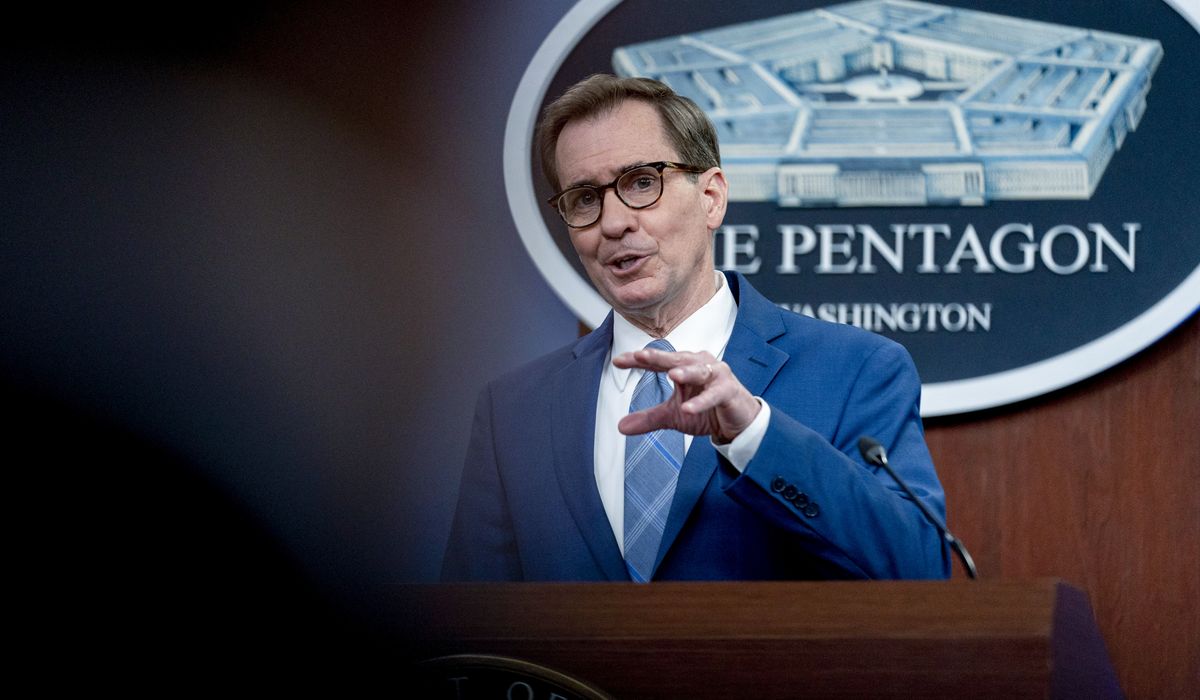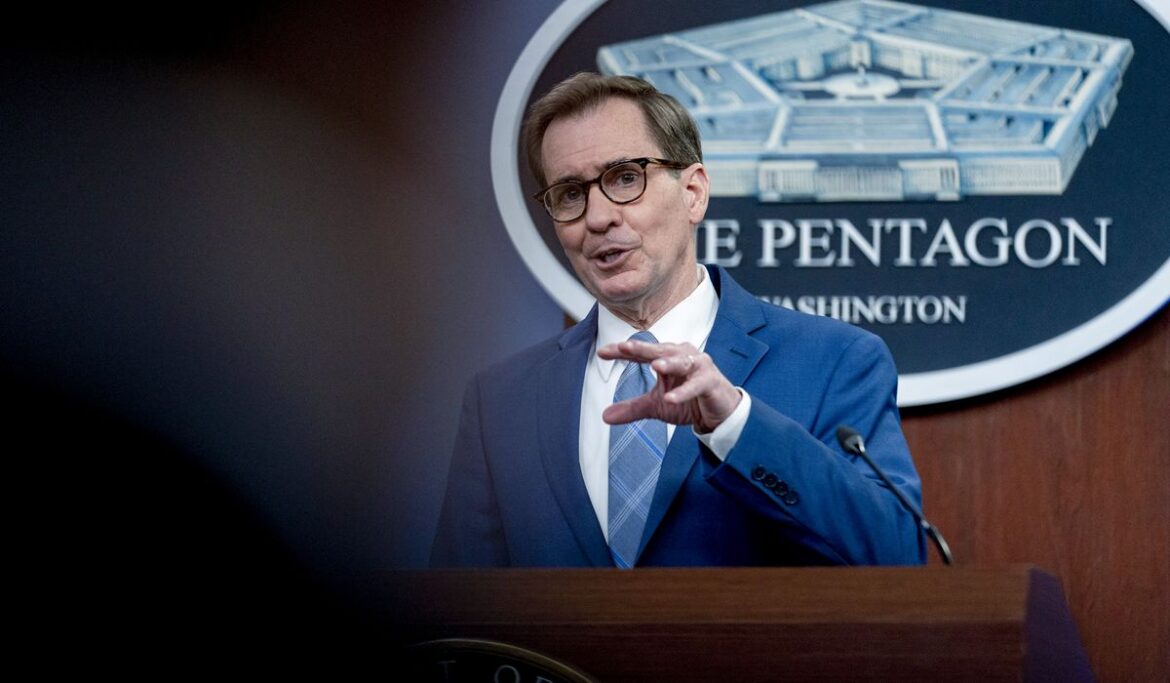
A U.S. commando raid in northwest Syria that resulted in the death of the leader of the Islamic State struck a major blow to the terrorist group and their potential to conduct future operations, Pentagon officials said Thursday, but added the threat is far from neutralized.
Abu Ibrahim al-Hashimi al-Qurayshi was behind a recent brazen attack on a Kuridsh-run prison in Syria holding Islamic State fighters and orchestrated the genocide of thousands of Yazidis in Iraq in 2014. U.S. officials say he died after detonating an explosive device as U.S. special operations troops were closing on the building where he was living with his wife and two children in a village near the Syrian border with Turkey.
“They are still a threat. Nobody is taking a victory lap here,” chief Pentagon spokesman John Kirby said Thursday.
The shadowy al-Qurayshi was named the leader of the Islamic State, also known as ISIS, in October 2019 after the death of his predecessor, Abu Bakr al-Baghdadi, during a U.S. raid in the same region earlier that month.
“He was very much involved in trying to resuscitate the group,” Mr. Kirby said. “This is a man we should all be happy is no longer walking on the face of the earth.”
Pentagon officials said the terrorist fighter detonated the explosive device in the early stages of the raid, which lasted about two hours. His wife and children also were killed in the blast, so powerful that it flung bodies outside of the house.
The raid was months in the planning and officials decided it should be a special operations raid, rather than a cruise missile or drone strike, out of concern for the safety of locals. The U.S. troops used loudspeakers to coax 10 people out of the building before they went in, officials said.
“We’re always mindful of the potential for civilian harm,” Mr. Kirby said. “The lives of innocents taken in this operation were caused by [al-Qurayshi] and his decision to blow himself up along with everybody else with him on that floor.”
The U.S. military does its best to avoid civilian harm during a combat operation, Secretary of Defense Lloyd Austin said in a statement.
“We know that al-Qurayshi and others at his compound directly caused the deaths of women and children last night,” he said. “But, given the complexity of this mission, we will take a look at the possibility our actions may also have resulted in harm to innocent people.”
The operation was under the direction of U.S. Central Command. Military officials identified the body through fingerprints and DNA analysis. A small group of locals approached the U.S. troops on the ground.
“They were appropriately deemed as hostile and they were engaged. Two of them were killed,” Mr. Kirby said.
Despite bringing down a terrorist with a $5 million U.S. bounty on his head, the raid drew mixed reactions on Capitol Hill.
Sen. James Inhofe of Oklahoma, the top Republican on the Senate Armed Services Committee, said it’s always a better day when there is one less terrorist in the world. But he faulted the administration for what he said was a lack of a coherent approach to counterterrorism and said Thursday’s raid raised new questions about the Pentagon‘s insistence it could deal with post-Afghanistan threats from jihadist terror groups such as the Islamic State without putting troops on the ground in vulnerable areas.
“In fact, it raises questions about the Biden administration’s counterterrorism strategy,” Mr. Inhofe said in a statement. “For many months, the administration has insisted that it can effectively counter terrorists through ‘over-the-horizon’ operations.”
Rep. Adam Smith, the Washington state Democrat who leads the House Armed Services Committee, reserved the lion’s share of the praise for the troops involved, but gave some of the credit to the leadership within the Biden administration.
“This successful operation does not mark the end of the ISIS threat or the counterterrorism challenge,” Mr. Smith said. “The United States must remain vigilant in the face of such threats.”





